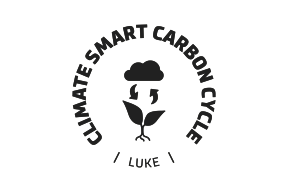Paludi4all
The EU funded Horizon Europe project “Socio-Economic and Climate and Environmental Aspects of Paludiculture” (Paludi4all), project no. 101181392, started on February 1, 2025, and ends in January 2029. Paludiculture is the productive use of wet and rewetted peatlands. Peatlands, when drained, become a significant source of greenhouse gas emissions. There are approximately 120,000–130,000 km² drained peatlands across the EU.
Paludi4All is a collaborative effort of seven research organizations with extensive interdisciplinary expertise in managing wet and rewetted peatlands. The project will contribute to the EU's broader environmental goals, including the implementation of the EU Climate Law, which mandates achieving climate neutrality by 2050. While rewetting drained peatland and establishing paludiculture are crucial contributions to global climate protection, the societal transformation in its economic and socio-cultural dimensions must be accompanied intensively in co-creative processes of knowledge generation and decision-making. The transition from drainage-based peatland use to paludiculture is a complex sustainability transition that goes far beyond raising water levels.
To address these challenges, Paludi4All conceptualizes peatland use as a social-ecological-technical system, which needs to undergo a sustainability transition from drained peatland use to paludiculture. This perspective explicitly considers farm economics and business management, policy, industry and technology, markets, science and culture which are closely interlinked. Paludi4All aims to identify and promote innovative solutions for expanding paludiculture across Europe, based on a comprehensive assessment of its environmental, economic, and social impacts. These findings will provide valuable insights to help scale up paludiculture and support the EU’s climate and nature restoration targets. The project will also explore the potential of paludiculture to create rural jobs and support income generation, ensuring that the transition to this sustainable land-use practice benefits local communities across Europe.
Luke leads WP2 “Economics and farm management” which analyses when and how adoption of paludiculture makes economic sense for a farmer. WP2 focuses first on the economically rational farm-level management when adopting climate-smart paludiculture options on peat soils. Economic requirements and implications of a transition are evaluated by:
- Synthesizing cost-revenue data for different paludicultures,
- Assessing consequences of paludiculture adoption and needed investments on farm level profitability,
- Exploring business model perspective on paludiculture and related decisions by farmers,
- Developing cost-benefit assessments integrating farm sector and environmental implications, and
- Estimating the impact of positive or negative incentives for reducing GHG emissions.
Farm level economic modelling is used to evaluate how paludiculture might contribute to land use, production and farmer’s profits over long time periods. Business model analysis is carried out in order to find out what paludiculture means for a farmer and his/her business idea and management with links to various actors in value chains and stakeholders, and to find feasible business models for farms with paludiculture activities. Finally, cost-benefit appraisals are made for ecosystem services in selected sites and regions. WP2 is expected to provide a cutting-edge understanding of the economic rationale of transitioning to paludiculture, aligning with the climate-resilient agricultural practices.
Paludi4All's outcomes will help to speed up paludiculture adoption by farmers, land-owners and land managers by making benefits of paludiculture visible. Moreover, it will provide recommendations for the removal of barriers for adoption in policy and governance. The economic viability assessment and market analysis will provide recommendations for land managers and farmers on how to increase efficiency, decrease costs, and potentially increase profits through the adoption of sustainable paludiculture practices.
All this is carried out in collaboration with other WPs and other projects, such as Paluwise, which addresses challenges of paludiculture through four large-scale paludiculture demonstration sites, located in the Netherlands, Finland, Poland and the United Kingdom, which will serve as hubs for innovation, co-learning, and demonstration.


